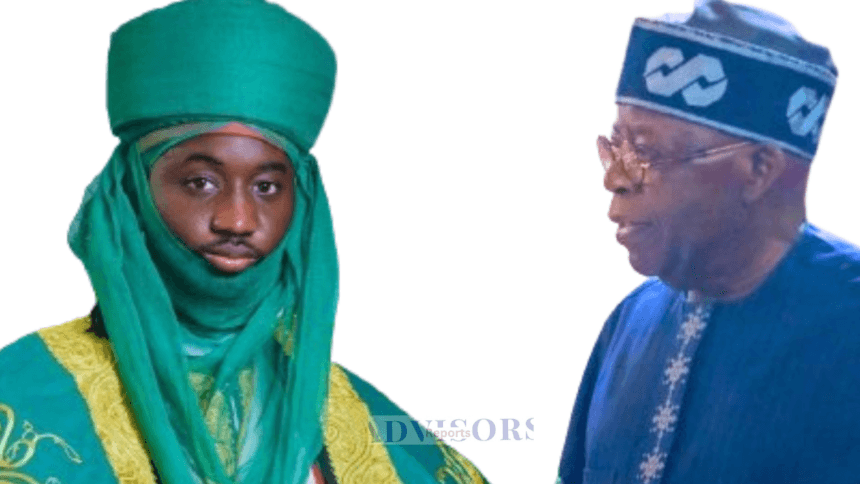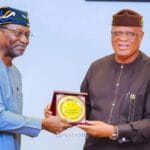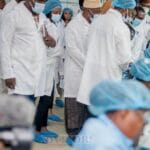Op-ed by Shola Adebowale
The recent statement by Emir of Kano, Muhammad Sanusi II, declining to offer support for President Bola Tinubu’s economic reforms, has sparked intense debate and discussion.
This development is particularly noteworthy given the historical relationship between Sanusi and Tinubu, who have both been vocal advocates for good governance in Nigeria.
In the past, Sanusi and Tinubu have been aligned in their quest for accountable and transparent leadership.
Sanusi, as the former Governor of the Central Bank of Nigeria, has been a strong voice for fiscal responsibility and economic reform.
Tinubu, as a key figure in the All Progressives Congress (APC), has also championed the cause of good governance and economic development.
However, Sanusi’s recent statement suggests that he is disappointed with the direction of Tinubu’s government, particularly with regards to economic policy.
Sanusi’s critique of the government’s economic reforms is not merely a personal opinion, but rather a reflection of his deep understanding of the Nigerian economy and his commitment to ensuring that policies benefit the most vulnerable segments of society.
Therefore, Sanusi’s statement serves as a wake-up call for Tinubu’s government to reassess its policies and actions.
The government must take a step back and evaluate whether its economic reforms are truly benefiting the Nigerian people.
This requires a willingness to listen to dissenting voices, including those of critics like Sanusi.
Furthermore, Tinubu’s government must be magnanimous enough to acknowledge its mistakes and make corrections where necessary.
This includes being transparent about its policy decisions and providing clear explanations for its actions.
The tell tale signs of what Sanusi is driving at, is sparkling obvious across the nation today, therefore the ability to listen to dissenting voices is a critical aspect of good governance.
By listening to critics like Sanusi, Tinubu’s government can gain a deeper understanding of the potential consequences of its policies.
This can help to prevent unintended harm and ensure that policies are truly in the best interests of the Nigerian people.
Moreover, listening to dissenting voices demonstrates a commitment to accountability and transparency.
When governments are willing to listen to critics, it sends a powerful message that they are committed to doing what is right, even if it is difficult or unpopular.
In other words there is no doubt that the nation is on the brink of a catastrophic economic crisis, with millions struggling to make ends meet amidst skyrocketing food prices and a crumbling economy.
The recent protests in Minna, Kano, and Ondo are a stark reminder of the desperation and frustration felt by citizens ,all across the nation.
Repeatedly, President Bola Tinubu’s government has been criticized for its slow response to the crisis, with many arguing that the proposed solutions are mere band-aids on a bullet wound.
The presidential committee on emergency food intervention, established to address the rising cost of living, has been met with skepticism by many who feel that it’s too little, too late , while nothing is even seen on ground to substantiate the existence of such committee.
To mitigate this crisis, Tinubu’s government must implement *short-term measures* to address the hyper-rising cost of living and historical hunger in the land.
These measures should include:
*Comprehensive Economic Reforms*: By Implementing prudent fiscal policies, enhancing agricultural productivity, and fostering a conducive environment for foreign investment to tackle inflation and stabilize the naira.
There is also an existential emergency need for *Food Intervention Programs*: By Providing immediate relief to vulnerable populations through targeted food intervention programs, such as food stamps or subsidies for essential commodities.
Undoubtedly, there is a national need for a comprehensive *Social Welfare Measures*:By Reviving and expanding social welfare programs, such as cash transfers and unemployment benefits, to support those most affected by the economic downturn and this should be closely monitored to ensure transparency and accountability.
The government must also prioritize *long-term solutions*, including investing in agriculture, infrastructure, and education to create jobs and stimulate economic growth.
The clock is ticking, and Tinubu’s government must act swiftly to address the hunger crisis and soaring cost of living,and that is the bottomline of Sanusi’s coded silent message, like the legendary Charlie Chaplin, he would say nothing, but his body language says much more.
As the fate of millions of Nigerians hangs in the balance, and the world is watching, and not just Sanusi, itis imperative to marshal a sustainable plan to safe the nation from any impending woes.
In conclusion, the relationship between Sanusi and Tinubu is complex and multifaceted.
While they have both been advocates for good governance, Sanusi’s recent statement suggests that he is disappointed like any other concerned Nigerians with the direction of Tinubu’s government.
Tinubu’s government must take Sanusi’s critique seriously and reassess its policies and actions. By listening to dissenting voices and being willing to make corrections,
Tinubu’s government can demonstrate its commitment to good governance and the well-being of the Nigerian people.




